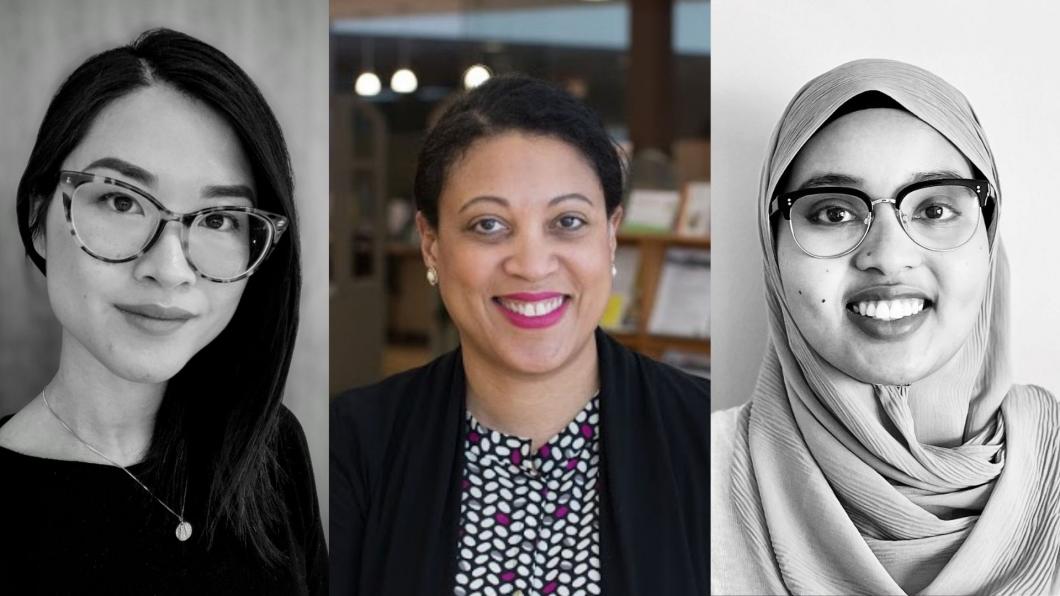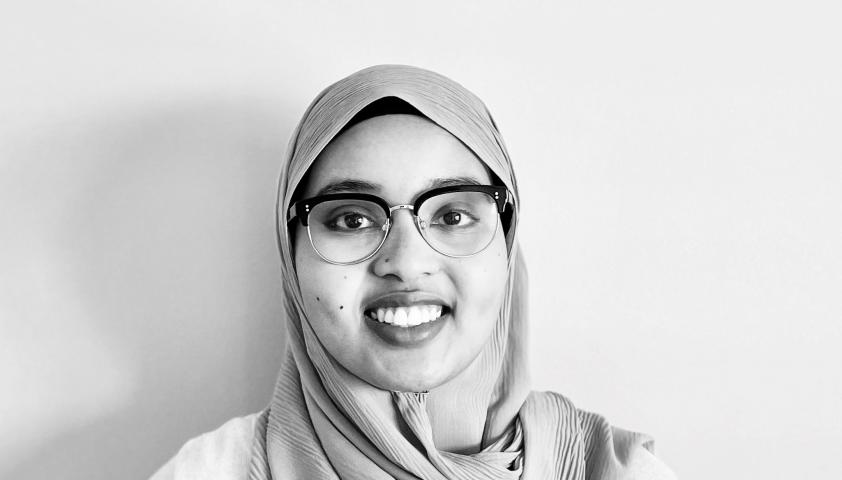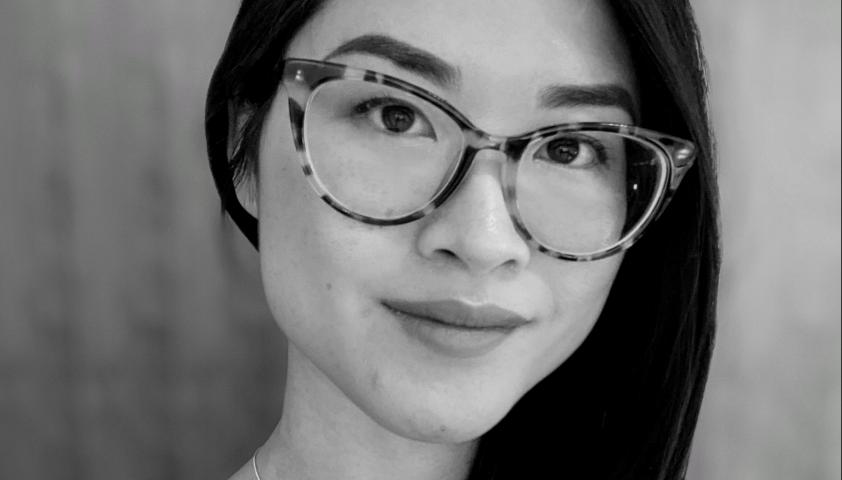
What does Black History Month mean to you?
At Holland Bloorview we recognize the need to create an equitable, diverse, and inclusive environment—not just within our walls but around the world.
And while we have made statements about our commitment to anti-Black racism, signed the BlackNorth Initiative pledge, and have also created a bank of resources, we are also still constantly working to ensure we are amplifying diverse voices and creating a safe space for each person who comes through our doors.
Unsurprisingly, 2020 made headlines not just for the global pandemic, but for the wave of social and racial justice movements that are awakening the world to the realities of the oppression, resistance, and resiliency experienced by Black people and communities.
That is why to celebrate, commemorate, and acknowledge this month we are amplifying Black voices and allies, about what Black History means to them and what non-Black communities can do to continue learning in an effort to make systematic change.
However, this is only a starting point to ensure these conversations happen more than just one month a year.

From Hiba
"As a Black women born in Canada to African immigrants my experience with Black History Month has been coming to terms with the fact that all Black voices are important and that all struggles are not the same. The systemic barriers I may face this does not equate to the same struggle and intergenerational trauma that Black Canadians who have been here for generations face. It is nice to see that individuals outside of the Black community are attempting to educate themselves and bring awareness. Hopefully, the momentum we have seen in the last few months is something that carries over and will lead to real systematic change.
Meaningful change includes reflecting, learning and unlearning. This also includes making efforts to answer questions that you may have, instead of expecting your Black colleagues to answer questions relating to race. There is nothing wrong with asking for some directions on where to access resources but ultimately there are ample resources on the internet, and it is your responsibility to learn.”

From Clara
“My earliest memories of Black History Month were learning about Harriet Tubman’s remarkable journey to liberate herself and other enslaved people through the Underground Railroad. Over the years, my understanding of and relationship to racial and social politics has changed.
To me, Black History Month means I am actively and intentionally dedicating time, space, and attention to honour and amplify Black stories of past, present and future. It means, as a practicing and imperfect ally against anti-Black racism, I reflect and act upon how I use my privilege, resources, and energy to advance the collective wellbeing of Black folks within my community. It also means leaning into discomfort and considering how my personal beliefs and actions uphold inequitable systems and structures. Then, within my locus of influence and control, challenge and change them.
This Black History Month, there is a profound need for collective healing and recovery across communities. At the same time and with great joy, I celebrate my Black friends, community members, and activists who are writing their own stories for Black History Months and generations to come.”
From Lorraine
"With regard to Black History month, I think that children really bring home the urgency of self-knowledge and the need for education. To elaborate.
A few months ago, my 8 year old was in the playground after school with classmates. Out of the blue, a schoolmate repeatedly yelled the full ‘n’ word preceded by an expletive. I was the only Black parent present. The parent of the child in question was not present. The other non-Black parents in the vicinity said nothing. My son was confused at the uproar that ensued and later asked ‘Was that the ‘n’ word?” because he had never heard it said in full. At which point I and my spouse who identifies as White, had to sit down and explain it in detail. To give the school full credit, they responded promptly and met with all the parties involved. My son’s teacher reached out to share her experiences of raising mixed race children, something I wasn’t aware of even though I had known her for over three years. In the spirit of being a community educator, I shared the How to Talk to Your Child about Racism tipsheet that my fellow family support specialists and I created back in June 2020. To my knowledge it was shared with my son’s class and the rest of the school. Incidentally just a few days later, there was yet another instance of racism at his school, this time anti-Asian.
So there was that distinct shift from giving myself a pat on my back where I was relieved/pleased to see how easily my mixed race kids navigated the world of white, brown and black, both in Canada and ‘back home’; to the crashing realization that due to my upbringing I was more equipped to deal with racism, but they weren’t. Exposure to other races simply wasn’t enough because they would need to acquire a carapace and the vocabulary to deal with it.
Ingrained stereotypes and personal perceptions don’t change overnight. At the risk of sounding simplistic, I would say be curious with a capital “C” in all areas of your life, personal and professional.
Challenge yourself to attend an educational seminar on anti-Black racism or sign up for an online course. If you’re browsing your public library or local Chapters bookstore, order a book by an author that you might not normally choose. Just because a sitcom or a movie features lead Black characters doesn’t mean you can’t watch it. Order from your local Black restaurants. Look beyond the surface: sun, sand and surf isn’t the only thing that is significant about the Caribbean. If you have kids, be aware of what they’re watching and reading and don’t be afraid to point out stereotypical portrayals. As a healthcare professional, look around you and wonder, “Where’s the representation?”, whether it be at a conference, in a family team meeting or consulting with external healthcare providers.”

From Logan
“Currently, the climate of justified radical activism by the Black Community (and allies) is ushering in an awareness of the injustices that communities of colour have and currently are facing. I am a biracial person; I live in intersectionalities of race, ability, and gender. I stand proudly as an ally for Black Lives, especially now with the tragedies of Black and Brown trans* folx being murdered not only in Toronto but around the world. The degrading treatment of these communities demands change within government and local policies and policing. Black Lives Matter it is as simple as that; But it’s complicated, we live in a country where systemic racism is built into society. Witnessing these tragedies has encouraged me to work towards equity and anti-racism policy within social work to help breakthrough the legacy of trauma and hate that pollutes our framework as a nation.”

From Justice
"I think my fondest memory of Black History Month is hearing all the voices of all people telling their stories, because stories have the power to build connections and it gives everyone the opportunity to share and celebrate.
In Ghana, where I grew up, we didn’t celebrate Black History Month and when I moved to Canada Black History Month was not in my vocabulary or on my radar. But after the George Floyd incident—seeing the way police treat Black people and highlighting racism and inequality in societies—it speaks to me about the critical issues and challenges facing Black people.
Black History Month means more to me now because people are speaking out about the everyday racism and discrimination they have faced. The global tributes and protests are breaking down barriers, human culture is shifting, and it means there are issues that need to be resolved.
That is why I think that all organizations or companies must embrace diversity now. Diversity in the workplace needs top-level commitment, otherwise the culture will not change. There is more Black talent available than ever before, this will serve as a role model and a support system to empower more Black people to climb the success ladder, therefore organizations have no excuse for not hiring Black people. I believe in equity. Organizations and companies can also benefit from the “Starbucks” experience, their program was designed to create awareness of unconscious biases, foster empathy, and build social connections.
Finally, I would like to end by quoting The New York Times, 'Eventually, doctors will find a coronavirus vaccine, but Black people will continue to wait for a cure for racism.'"